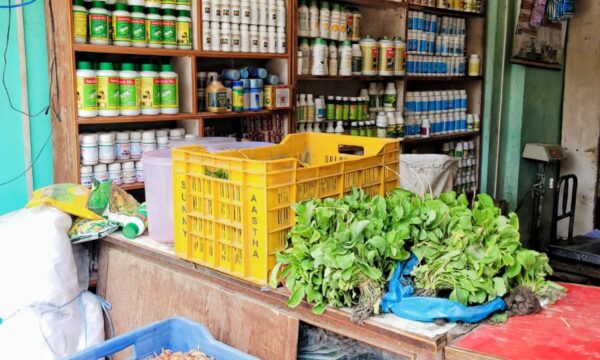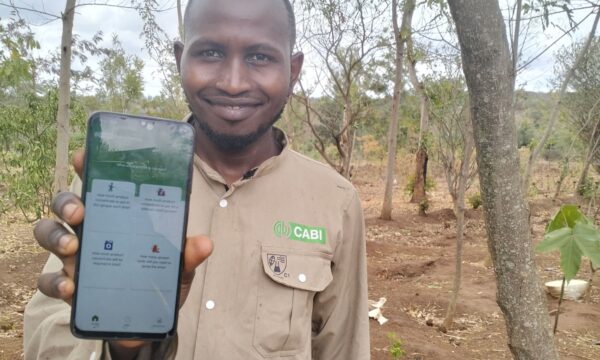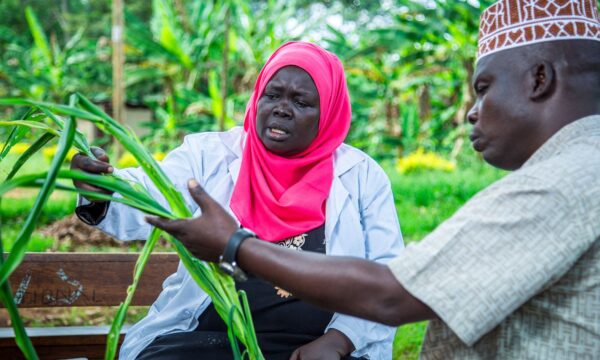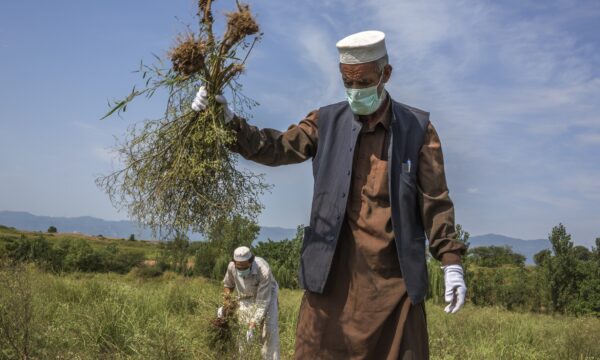In Zambia, smallholder farmers face various pest and disease challenges, including fall armyworm in maize and cassava brown streak disease. Pesticides are often used to manage these threats; however, improper use can harm both human health and the environment, as well as reduce farm productivity and cause pesticide resistance. Reducing pesticide risk requires supporting advisors with up-to-date knowledge and practical skills so farmers receive guidance on less harmful pest management options.
Meet Ignitious Chilembo, a Senior Agricultural Research Officer at the Zambia Agricultural Research Institute (ZARI). Based at Copperbelt Research Station, Ignitious has spent the last five years working in plant protection, specialising in crop pest management. His role is not only to understand insect pests but also to generate technologies that farmers can use to manage them sustainably.
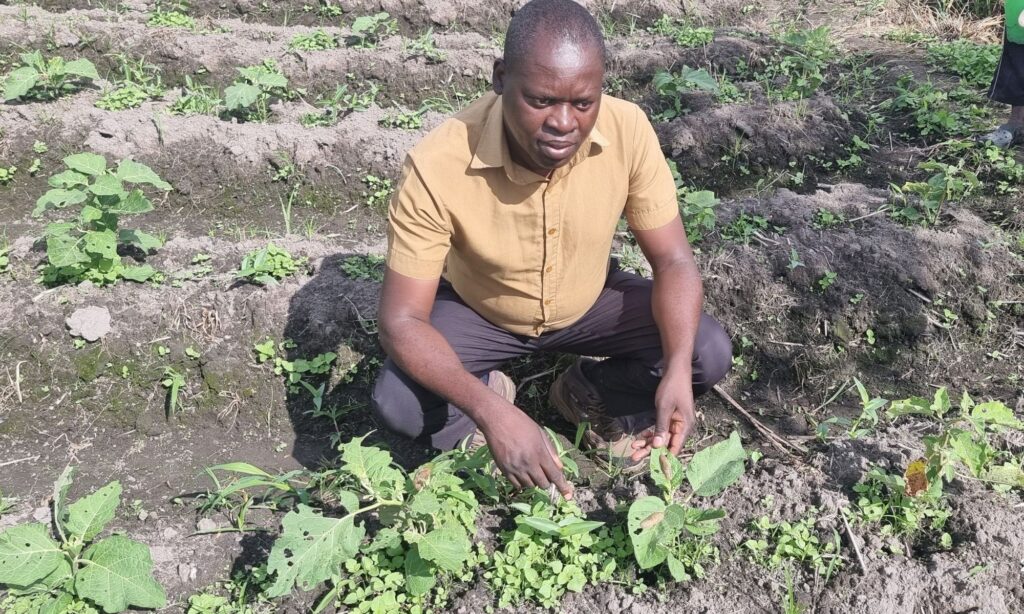
“Modern agriculture demands a shift from simply eliminating pests to responsible pest management, which prioritizes environmental and occupational health and food safety,” Ignitious says. It is this awareness that led him to enrol in the Reducing Pesticide Risk course on CABI’s online learning platform, CABI Academy.
Pesticide safety
The course provided Ignitious with a refresher on pesticide safety, guidance on alternatives, and insights into the economics of pesticide use. In addition, it was also an opportunity to refine the advice he gives to farmers every day. “This course effectively refreshed my knowledge on pesticide risk reduction. It updated my understanding of current advisory guidelines, emphasizing a comparative approach to selecting lower-risk options based on comprehensive criteria, including human safety and environmental impact.”
Why pesticide risk reduction matters in Zambia
In Zambia, smallholder farmers make a significant contribution to food production. Staple crops such as maize, groundnuts, cassava, sorghum and millet, and soya beans are crucial to food security.
However, crop pests and diseases pose an ever-present challenge. Fall armyworm, for example, has become one of the most damaging pests of maize in the region. Cassava farmers are also dealing with serious diseases such as cassava brown streak disease, which can wipe out entire harvests.
For many farmers, pesticides offer the quickest solution. Yet improper use can lead to adverse health effects, reduced soil health, contamination of water sources, and loss of beneficial insects. Moreover, pesticides are sometimes sold by informal or unqualified suppliers and can be repackaged in unlabelled containers, making safe use even harder for farmers.
This is why pesticide risk reduction is a key area of work within the PlantwisePlus programme. In Zambia, the programme collaborates with national and regional partners to support farmers in reducing their reliance on chemical pesticides and promoting less harmful alternatives, such as biological controls. By strengthening the knowledge and skills of advisors like Ignitious, the programme helps ensure that farmers can protect their crops without compromising their health or the environment.
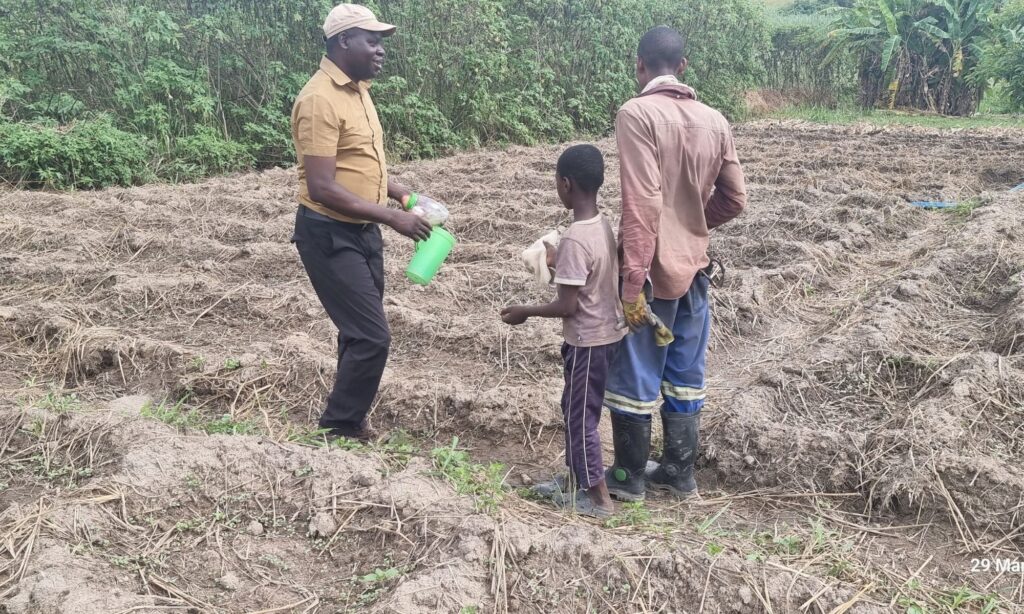
Pesticide costs
For Ignitious, one of the most valuable parts of the course was understanding the monetary costs associated with pesticide misuse. “This course helped me understand that while pesticides can save a crop quickly, misusing them costs a lot more money in the long run,” he explains. “It filled my skills gap by giving me a clear list of what ‘misuse’ looks like, like using the wrong amount or not wearing protective gear. Now I know to choose safer, more affordable options first, which will save money and keep people healthier.”
This information is directly relevant to smallholder farmers worldwide, who face tough choices every day about how to manage pests while balancing limited resources.
Putting knowledge into action
Ignitious is ready to put the knowledge he has learned into action. “The quality of my advisory services will improve,” he says. “For example, I will tell farmers that when they notice pests in their crop, instead of immediately applying a pesticide, they first have to try a non-chemical method. This could help save the cost of the pesticide and reduce pesticide risk.”
That simple change in advice from “spray first” to “consider alternatives” can have wide-reaching effects. Non-chemical methods, such as cultural practices, biological controls, and resistant crop varieties, help reduce risk and can build long-term resilience.
By encouraging these methods, Ignitious is not only helping farmers save money but also supporting healthier farms and communities. “By completing this course, I will significantly improve my ability to advise on pesticide management and conduct higher-quality research. This professional growth will allow me to serve farmers better, helping them achieve real economic savings, build healthier farms, reduce their risk, and feel more empowered.”
Looking forward
As Zambia works to address the ongoing challenges of pest and disease outbreaks, safer and more sustainable management options are vital to support farmers. Equally important is ensuring that those who advise farmers have access to the reliable information and resources, enabling them to stay up to date with new developments. Professionals like Ignitious demonstrate the impact that this kind of support can have, to farmers, communities and the wider plant health system.
Further reading
PlantwisePlus
PlantwisePlus gratefully acknowledges the financial support of the Directorate-General for International Cooperation, Netherlands (DGIS); European Commission Directorate General for International Partnerships (INTPA); UK International Development from the UK government; and the Swiss Agency for Development and Cooperation (SDC).
Related News & Blogs
PlantwisePlus develops agro-input dealer training scheme with Bangladesh government
Pest outbreaks in Bangladesh are causing a rapid increase in the sale of pesticides. Farmers are turning to chemical products such as fungicides, herbicides and insecticides to manage pests, which they often buy from their local agro-input dealer. Howe…
22 January 2026

